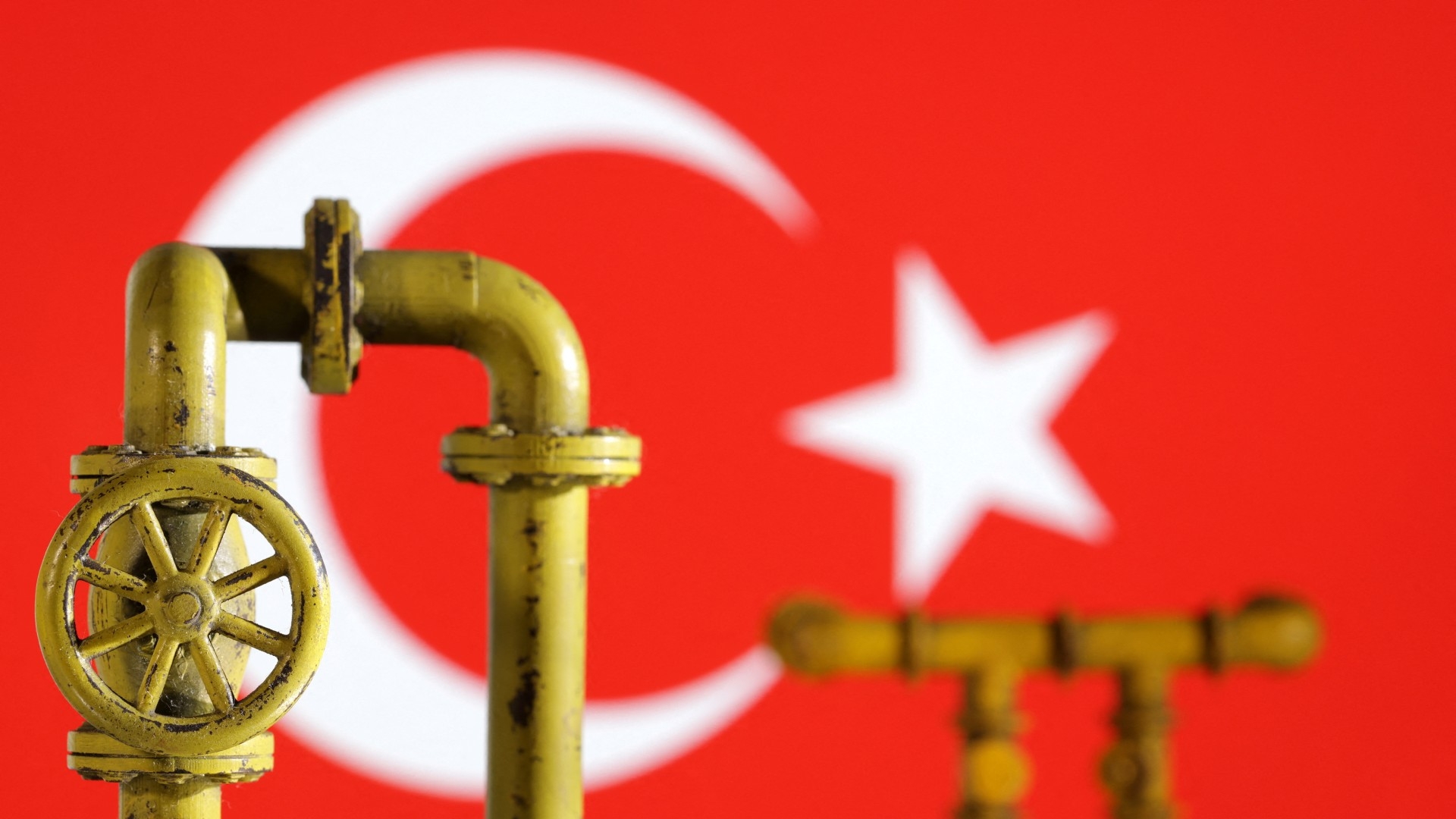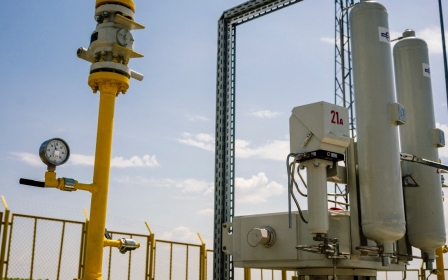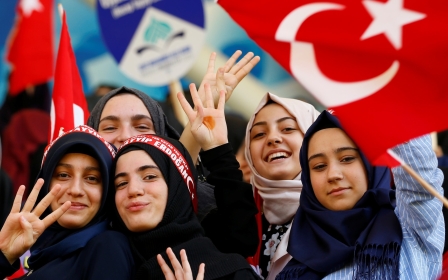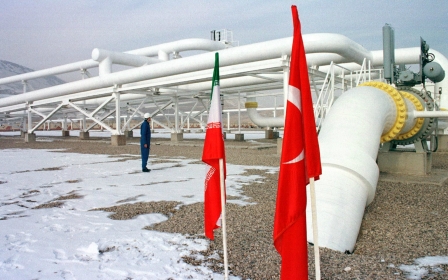Turkey elections: Erdogan offers free Black Sea gas to residential areas

Turkey pumped its first locally produced Black Sea natural gas to its national system on Thursday, increasing its energy independence and offering free gas to its citizens ahead of close-run elections.
During a "commissioning ceremony" in the Black Sea town of Zonguldak, Turkish President Recep Tayyip Erdogan said the gas consumed in residential areas would be free of charge for a month to celebrate the occassion, saving 625 lira ($32.2) for each household.
He then said the gas consumption in residential kitchens and bathrooms would also be free for a year, handing out around 25 cubic metres per month.
The calculations suggest people would save 125 lira ($6.44) each month during a biting cost-of-living crisis, amounting to a total of 1,500 Lira ($77.2) annually.
Ankara plans to pump the first Black Sea gas to residential areas before the 14 May presidential and parliamentary elections, possibly boosting Erdogan’s popularity.
New MEE newsletter: Jerusalem Dispatch
Sign up to get the latest insights and analysis on Israel-Palestine, alongside Turkey Unpacked and other MEE newsletters
In December, Turkey upped the estimate of its natural gas reserves in the Black Sea by nearly a third, putting its total deposits at 710 billion cubic metres. It has a market value in the region of $1 trillion.
As part of a national energy plan, Turkey aims to be more energy self-sufficient, utilising its own energy resources to reduce expensive gas imports.
Black Sea gas hopes
Turkey's Sakarya field was already thought to contain the largest gas reserves ever recorded in the Black Sea.
The Black Sea fields will initially be supplying 10 million cubic metres per day, then rising to a high of 40 million cubic metres in 2026, covering roughly a quarter of the country’s needs a year.
Taking an average spot price of 10 liras per cubic metre, as quoted by the Turkish Energy Stock Market (EPIAS), experts calculated that first-phase gas could contribute 35 billion lira ($1.8bn) to the economy.
Oguzhan Akyener, the president of Turkiye’s Energy Strategy and Political Research Center (TESPAM), told Anadolu Agency that first-phase production of 10 million cubic metres of gas per day could meet 5–6 percent of Turkey's annual demand.
Turkey eventually aims to produce an annual 60 million cubic metres.
Since the first natural gas discovery in 2020, 170km from Zonguldak on the Black Sea coast, more than 8,000 employees on land and 2,000 at sea have spent over two years working in three shifts to extract gas.
At the moment, Turkey has little of its own oil and gas and is highly dependent on imports from Russia, Azerbaijan and Iran. It also imports liquid natural gas (LNG) from Qatar, the United States, Nigeria and Algeria.
Unlike in the eastern Mediterranean, another energy-rich region where Ankara is locked in a series of maritime border disputes with Cyprus and Greece, Turkey has already demarcated its maritime zone with its Black Sea neighbours, a crucial step in the road to extracting and monetising energy resources.
In December, Erdogan said Turkey may build a new pipeline to transport gas from Turkmenistan and Azerbaijan to Europe, noting that existing pipelines crossing through Turkey into the Balkans had already reached their limits.
Russian President Vladimir Putin has also suggested Turkey could become a "gas hub". Currently, there are two TurkStream pipelines linking Russian gas to Turkey, mainly serving its domestic market.
Middle East Eye delivers independent and unrivalled coverage and analysis of the Middle East, North Africa and beyond. To learn more about republishing this content and the associated fees, please fill out this form. More about MEE can be found here.





